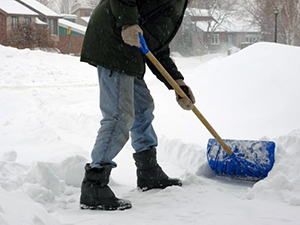Toronto, Feb 16: People living in regions that see heavy snowfall, like India’s Himalayan region, better be careful as you are at an increased risk of a heart attack after a heavy snowstorm, a new study suggests.
The risk was found to be particularly higher for men and researchers believe that shovelling is the main mechanism linking snowfall with heart attack, or myocardial infarction (MI).
“Men are potentially more likely than women to shovel, particularly after heavy snowfalls. Snow shovelling is a demanding cardiovascular exercise requiring more than 75 per cent of the maximum heart rate, particularly with heavy loads,” said study co-author Nathalie Auger from University of Montreal Hospital Research Centre in Quebec, Canada.
The team of researchers looked at data from two separate administrative databases on 128,073 individual hospital admissions and 68,155 deaths from heart attack (MI) in the province of Quebec between 1981 and 2014.
They restricted analysis to months in which snow falls, November to April, and obtained detailed weather information from Environment Canada for each health region included in the study.
About 60 per cent of hospital admissions and deaths due to heart attack were in men, showed the study published in the Canadian Medical Association Journal.
The day after a snowfall had the strongest association.
“Quantity of snowfall was associated with an increased likelihood of hospital admission or death due to MI the following day among men,” the study said.





Comments
Add new comment